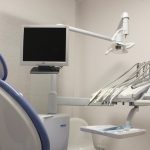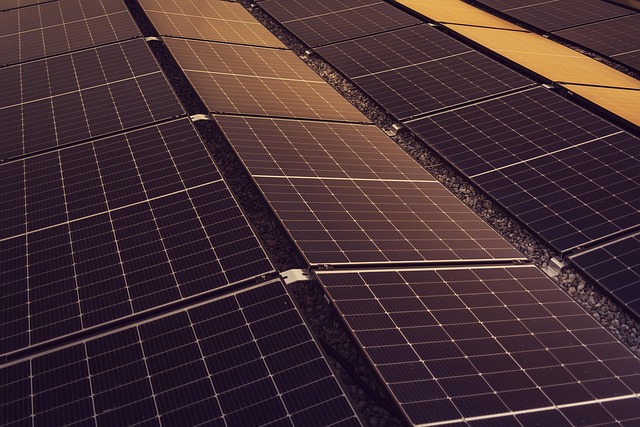Harnessing commercial rooftop solar systems transforms retail spaces into energy-efficient hubs. These installations reduce operating costs, boost sustainability credentials, and offer long-term savings. Understanding installation, financing, and maintenance empowers retailers to make informed decisions that align with their business goals and environmental commitments.
Overview of Commercial Rooftop Solar Systems
Solar Panels for Retail Parks play a pivotal role in advancing renewable energy adoption for businesses seeking sustainable solutions. These systems are specifically designed to harness solar energy atop commercial rooftops, transforming unused roof space into productive energy hubs.
Also read : Unlocking quality: your guide to choosing a rendering supplier
There are two primary types of commercial rooftop solar setups: fixed systems and tracking systems. Fixed systems involve solar panels installed at a set angle, offering simplicity and reliability. Tracking systems, on the other hand, adjust their orientation throughout the day to maximize sunlight capture, boosting energy output but with higher installation complexity.
The integration of commercial solar energy solutions offers several advantages:
Also read : Expert solicitors in Surbiton for your peace of mind
- Cost savings: Businesses can significantly reduce their energy bills by generating their own electricity, with the potential for profit through feed-in tariffs or selling excess power back to the grid.
- Environmental impact: These systems cut carbon footprints by providing clean, renewable energy without emissions, aligning with corporate sustainability goals.
- Reputation improvement: Adopting solar technology enhances corporate social responsibility, positively influencing public perception and customer loyalty.
Efforts to install Solar Panels for Retail Parks are further supported by government incentives, including tax credits, grants, and rebates. These financial aids help offset initial costs, making large-scale deployment more feasible.
The typical cost for commercial rooftop solar in the UK varies based on system size and complexity, generally ranging from approximately £800 to £1,200 per kilowatt peak. Larger installations tend to benefit from lower per-unit costs due to economies of scale, enabling retailers and industrial facilities to optimize their investment.
Considering the broad benefits—from fiscal savings to environmental stewardship—more businesses are exploring such systems. Installing commercial solar panels not only provides immediate economic advantages but also bolsters long-term sustainability and operational resilience, particularly important for retail parks seeking to reduce dependency on fluctuating energy prices.
Benefits and Financial Advantages of Commercial Solar for Businesses
Cost Savings and Return on Investment
For companies considering commercial solar energy solutions, the primary factor is often direct solar energy cost savings. By installing rooftop photovoltaic panels, businesses can experience substantial reductions in commercial energy bills—often cutting annual electricity expenditures by 40–70%. The payback period for a solar installation for businesses typically ranges from 4 to 7 years, depending on commercial photovoltaic system costs, site conditions, and available subsidies. Government commercial solar incentives and tax credits for business solar can further reduce upfront capital requirements, with grants for solar panels on commercial buildings UK commonly available and updated to support rapid adoption. These financial mechanisms together boost the solar power ROI for businesses, translating to saving thousands of pounds over the panels’ 25-year lifespan.
Environmental and Brand Benefits
The environmental impact of commercial solar systems extends beyond energy-efficient commercial buildings. By adopting green energy solutions for commerce, organizations reduce their dependence on fossil fuels, which directly results in decreasing the carbon footprint via solar. These actions support corporate sustainability reporting requirements and demonstrate proactive involvement in sustainability initiatives for companies. Such progress visibly enhances a company’s public identity, as today’s consumers increasingly value businesses with strong environmental credentials. Solar-powered companies align closely with corporate social responsibility goals, improving their reputations and often gaining a competitive marketing advantage in their sector. This positive attention helps attract environmentally conscious clients, partners, and employees.
Additional Financial Options
Besides purchasing solar systems outright, there is a range of solar system financing options tailored to different business models. Leasing agreements or power purchase agreements allow companies to access commercial building solar setups without high initial outlays. With net metering policies in place, businesses can generate revenue by feeding excess power back into the national grid, creating new income streams while further reducing operational costs with solar. For organizations interested in maximizing rooftop solar efficiency, investment in hybrid solar energy systems for companies or the integration of energy storage battery options can unlock new levels of autonomy and power consumption reduction strategies. Maintenance needs are manageable as solar panel maintenance for companies is designed to be straightforward and supported by robust solar system warranties for commercial use, making ongoing operation simple and predictable.
Adopting commercial solar is therefore not just about environmental responsibility; it’s a strategic investment in long-term financial stability, enhanced reputation, and ongoing energy independence with solar for any forward-thinking enterprise.
Installation Process and Technical Considerations
System Design and Planning
In the initial stage of solar installation for businesses, system design and planning are fundamental. The configuration of rooftop photovoltaic panels must suit the roof’s type and dimensions while addressing unique energy needs. Professional assessments, such as energy consumption audits and rooftop structural assessment for solar, guide the selection of optimal solar power system design and solar array configuration options. Integrating solar with existing roof structures requires careful evaluation to prevent any adverse impact, so installing solar with minimal roof impact is always a priority.
Decisions around commercial solar panel types, combined with solar panel efficiency ratings and weather resistance, maximize rooftop solar efficiency over decades of operation. Advanced commercial solar energy solutions, including hybrid solar energy systems for companies, allow for grid-tied or off-grid solutions for companies if required. Scalability plays a key role—commercial solar installation process planning should ensure that the solar system performance optimization is possible if energy demands grow. When energy storage with commercial solar is integrated, businesses can capitalize further on sustainability initiatives for companies, storing and consuming clean energy even when sunlight is limited.
Permitting, Regulations, and Safety Standards
Before any physical work begins on a rooftop, navigating solar permit requirements and local regulations is crucial. Compliance with solar energy regulations for businesses, building codes, and industry safety standards is non-negotiable. Certified contractors, ideally selected through rigorous processes, lead the installation to uphold solar power safety standards. For commercial roof projects, robust quality assurance methods are paramount, as system durability and safety come first.
For locations seeking commercial solar incentives such as grants for solar panels on commercial properties, or leveraging government solar programs, correct documentation and adherence to regulatory procedures open more funding and rebate options. Collaborating with utility company representatives ensures grid-tied solar systems meet local requirements, especially when net metering policies or demand response programs might benefit the business.
Installation Timeline and Project Management
The solar installation for businesses unfolds in distinct phases: initial detailed survey, custom system design based on commercial building solar setups, permitting, procurement, and then the installation itself. Project managers skilled in commercial solar project planning power seamless execution, coordinating between contractors, suppliers, and site operations to reduce disruptions—especially in occupied or urban commercial solar deployments.
Complex environments such as active warehouses or retail facilities can present common challenges in commercial solar, including space constraints, weather delays, or coordination with ongoing business activities. Here, experienced project management maintains safety and schedule, guaranteeing the solar installation timeline for commercial solar stays on track. Once installed, tracking solar energy output via solar energy monitoring tools and securing commercial solar maintenance contracts extends the system’s output, boosting the long-term commercial solar benefits for the business.
Every phase, from initial design to post-installation solar panel maintenance for companies, underpins both cost-effective operation and a strong return on investment. This approach transforms commercial solar energy solutions from initial concept to a sustainable backbone for energy-efficient commercial buildings.
Costs, Models, and Maintenance of Commercial Solar Systems
Cost Breakdown and Factors Affecting Price
Precision is critical when estimating commercial photovoltaic system costs. The average price for rooftop photovoltaic panels on commercial buildings in the UK generally ranges from £800 to £1,200 per kilowatt peak (kWp). Larger commercial solar energy solutions, such as a 50 kW installation, may cost around £30,000, whereas a 5 kW setup could be approximately £4,500. Price varies with system size, as larger solar installation for businesses benefit from economies of scale: the per-kWp cost typically decreases as system capacity increases. This advantage makes expansive commercial building solar setups financially compelling for organizations with significant energy needs.
Several elements influence the final commercial photovoltaic system costs. Geography affects sunlight exposure and installation complexity. Roof structure matters—more complex or taller roofs may need additional engineering or specialized fixings to securely integrate rooftop photovoltaic panels. Choosing higher-grade components, including top-tier solar panel maintenance for companies, also raises initial outlay but usually increases long-term returns due to better durability and efficiency. Ultimately, when designing a commercial solar power system, businesses should anticipate the combination of equipment, installation, and scalability to shape cost.
Commercial solar incentives further influence overall investment. These may include tax credits for business solar, direct grants for solar panels on commercial buildings UK, or other solar rebates for businesses. Engaging in sustainability initiatives for companies may also open opportunities for financial support, helping offset project costs and extending benefits to power consumption reduction strategies.
Maintenance, Warranties, and Monitoring
Ongoing maintenance ensures the effectiveness and safety of any solar installation for businesses. Routine cleaning of rooftop photovoltaic panels is crucial, as accumulated debris or dirt can dramatically reduce efficiency. Scheduled inspections should assess for physical damage, electrical integrity, and inverter performance, reducing the likelihood of unexpected outages and maximizing rooftop solar efficiency.
Most manufacturers back their products with a 25-year performance warranty, reflecting the long-term cost savings anticipated from commercial photovoltaic system costs over time. Inverters commonly come with a 2-year warranty. Access to solar system warranties for commercial use aids in risk management, allowing businesses to forecast maintenance budgets with confidence.
Monitoring plays a vital role in energy-efficient commercial buildings, enabling businesses to track output and optimize solar power system design remotely. Monitoring tools can detect issues instantly, help measure commercial solar energy solutions output, and inform operators if cleaning or servicing is needed. This proactive approach forms the backbone of dependable solar installation for businesses and allows for quick intervention if system performance dips.
System Upgrades and Lifecycle Management
Business needs may evolve, and so should the solar power system scalability. Scaling up systems—for example, integrating energy storage with commercial solar or transitioning to hybrid solar energy systems for companies—can enhance autonomy and adapt to greater energy demands. Expansion is straightforward if solar array configuration options and solar power system design accounted for it initially.
When panels or equipment reach the end of their operational lifespan, responsible end-of-life solar panel recycling is essential. Many suppliers now have programs to handle the removal and recycling of photovoltaic materials, reducing environmental impact of commercial solar projects. Manorities like AlphaGen Energy’s solutions are increasingly robust in this facet, helping maintain an environmentally conscious profile.
Lifecycle analysis of solar panels aids in planning and budgeting for replacements. Compliance with solar energy regulations for businesses ensures the system continues to maximize rooftop solar efficiency and meets all current standards for safety and sustainability.
By comprehensively managing commercial photovoltaic system costs, panel durability, regular maintenance, and future upgrades, businesses are positioned to secure the long-term commercial solar benefits that accompany a well-planned solar installation for businesses.
Case Studies and Examples of Commercial Solar Projects
Notable Installations and Success Stories
Solar power system design and well-executed commercial solar project planning are at the center of the UK’s most impactful business solar transformations. The Salisbury Cathedral Solar Roof project stands out, demonstrating that integrating rooftop photovoltaic panels is possible even on historical and architecturally sensitive buildings. Engineers devised a bespoke solar installation for businesses operating within stringent site requirements, achieving strong energy-efficient commercial buildings credentials. Energy consumption audits and careful solar array configuration options were fundamental to maximizing rooftop solar efficiency and protecting the heritage site’s integrity.
Retail chains, including Aldi and Marks & Spencer, exemplify the scalability of commercial solar energy solutions. By tailoring commercial building solar setups to individual store needs, they have realized significant solar energy cost savings and advanced ambitious sustainability initiatives for companies with large property portfolios. These projects relied on selecting solar contractors skilled in integrating solar with existing roof structures, ensuring minimized operational disruption during the commercial solar installation process.
Manufacturing facilities like Norbar Tools highlight the financial and environmental impact of commercial solar for warehouses and factories. Through effective commercial solar project planning and application of solar panel durability on rooftops, Norbar achieved robust solar power ROI for businesses, reducing operational costs with solar and reinforcing corporate sustainability reporting. The Norbar project’s recognition at industry awards underlines best practices and innovation in solar power system design.
Lessons Learned and Best Practices
Key lessons from these solar project case studies for businesses underline the importance of design considerations for maximizing efficiency and reliability. Solar roof mounting options must be carefully evaluated to accommodate a range of commercial property types, from listed elements to modern retail facilities. Adopting grid-tied solar systems or, where beneficial, hybrid solar energy systems for companies allows businesses to balance on-site energy use and export opportunities through net metering policies, further boosting commercial solar incentives.
Common challenges in commercial solar are addressed by thorough energy consumption audits and pragmatic solar installation for businesses that minimize downtime and comply with relevant solar energy regulations for businesses. Overcoming hurdles such as access restrictions, complex permitting, and the need for uninterrupted operations requires experienced project management and advanced rooftop assessment techniques.
Demonstrated financial and environmental benefits include reduced commercial energy bills and support for reducing carbon footprint via solar, making these installations powerful green energy solutions for commerce. Commercial photovoltaic system costs are offset not only by solar energy cost savings and government solar programs, but also by tax credits for business solar and solar energy grants for commercial use, available to qualifying UK projects. Long-term, successful solar arrays contribute to energy independence with solar, strengthening both environmental impact of commercial solar efforts and a company’s public standing—an outcome evidenced repeatedly in leading UK commercial deployments.
Choosing Providers and Ensuring Quality
Criteria for Selecting Reputable Installers
When selecting solar contractors for a commercial solar installation process, precision is essential. Certified installers—such as those holding NICEIC, MCS, or ISO accreditations—demonstrate technical competence and quality assurance for commercial solar energy solutions. Evaluate experience by prioritizing teams with a proven portfolio in solar installation for businesses and similar commercial building solar setups. Assurance of post-installation support is also vital; maintenance contracts, annual check-ups, and clear service commitments should be non-negotiable, reflecting a company’s dedication to long-term solar energy cost savings and system durability.
Reputation can be verified by viewing comprehensive case studies, discussing completed solar array configuration options, and confirming the use of high-rated rooftop photovoltaic panels. These practices foster reliability and compliance throughout the commercial solar installation process and directly relate to the expected solar power ROI for businesses.
Role of Project Management and Customer Support
Dedicated project management streamlines every stage of the commercial solar installation process. Assigning an experienced manager enables seamless coordination between stakeholders, accurate tracking of energy consumption audits, and timely resolution of on-site challenges. Transparent communication is a recurring theme in successful commercial solar project planning; reputable contractors maintain clarity about installation timelines, grid-tied solar systems integration, and legal steps, especially when undertaking urban commercial solar deployments or solar for retail facilities.
Expertise in navigating solar energy regulations for businesses and supporting applications for solar energy grants for commercial use ensures compliance and unlocks available financial advantages, including solar rebates for businesses and tax credits for business solar. Customer support extends further, with staff assisting companies in power consumption reduction strategies and maximizing rooftop solar efficiency for prolonged benefits.
Additional Services and Support
Modern commercial solar energy solutions should provide advanced monitoring tools and detailed performance reports, empowering facility managers to monitor system output and identify potential issues with rooftop photovoltaic panels quickly. Contractors offering flexible financing and solar system financing options lower barriers to adoption—offering routes such as leasing, power purchase agreements, and access to government solar programs that boost immediate affordability without heavy upfront investment.
Long-term service agreements, which may include cleaning, upgrades, or periodic system optimization, are essential for ensuring solar power system design longevity and the overall reliability of energy-efficient commercial buildings. These integrated services not only safeguard solar panel maintenance for companies but also enhance energy storage with commercial solar, enabling robust, green energy solutions for commerce over decades.
Regulatory Environment and Incentives
Government Policies and Funding Opportunities
Commercial solar incentives play a decisive role in making solar installation for businesses financially attractive. The primary mechanism is tax credits for business solar, allowing companies to deduct a portion of system costs from tax liabilities. National and regional governments routinely offer additional benefits, such as rebates and grants for solar panels on commercial and industrial properties. Recent regulatory updates have broadened accessibility, especially for rooftop photovoltaic panels on energy-efficient commercial buildings, leading to greater solar energy cost savings and more favorable solar power ROI for businesses.
These commercial solar incentives can include upfront grants for solar panels on commercial buildings in the UK, ongoing solar rebates for businesses, and access to government solar programs targeting specific corporate sustainability reporting initiatives. Sectors such as manufacturing or retail facilities often qualify for unique incentives. Regular policy revisions continue to shape the investment landscape—some changes increase the value or reach of tax credits for business solar, while others introduce fresh grant opportunities or green energy solutions for commerce based on location, business type, or system scale.
Navigating Permitting and Compliance
For commercial building solar setups, businesses encounter a layered framework of solar energy regulations for businesses, from local planning permission considerations to national code compliance. The solar installation for businesses process demands careful attention to solar permit requirements and safety standards, particularly with integrating solar with existing roof structures. Ensuring commercial solar panel types are compatible with both building codes and insurance criteria is essential.
Planning begins with a comprehensive rooftop assessment, which informs whether additional structural work is required for safely mounting rooftop photovoltaic panels. Businesses in conservation or heritage areas may face stricter scrutiny, but specialized support simplifies applications and approval. Ongoing compliance includes adherence to solar power safety standards and routine documentation for tracking solar energy output and grid-tied solar systems operation. This compliance is vital both for eligibility for commercial solar incentives and long-term maintenance.
Environmental Certifications and Sustainability Reporting
Businesses benefit from pursuing environmental certifications such as Green Building standards when adopting energy-efficient commercial buildings with solar. These certifications validate the environmental impact of commercial solar and are increasingly tied to corporate sustainability reporting. When reporting progress on sustainability initiatives for companies, data from solar power system design—such as reductions in carbon footprint via solar and solar energy cost savings—highlight a business’s commitment to clean energy.
Tax credits for business solar often require substantiated documentation, and certifications support claims made in these filings. Beyond compliance, demonstrating leadership in solar installation for businesses enhances the brand’s image, positioning companies as forward-thinking and environmentally responsible to investors, customers, and wider stakeholders. In addition, such recognition can open eligibility for further solar energy grants for commercial use, increasing both the reach and impact of solar power system design within overall corporate strategy.
Future Trends and Innovations in Commercial Solar
Emerging Technologies and Enhanced Efficiency
Solar power system scalability is rapidly advancing with breakthroughs in panel efficiency and durability. Today’s rooftop photovoltaic panels are lighter, stronger, and engineered to maximize rooftop solar efficiency across varying roof types. Improved energy storage battery options are making hybrid solar energy systems for companies more attractive, blending battery backup with standard grid-tied solar systems for reliable uptime.
Energy-efficient commercial buildings are increasingly using solar installation for businesses not just for power generation, but to store excess energy and reduce grid reliance. Smart monitoring and solar energy monitoring tools link real-time power consumption reduction strategies with maintenance alerts—helping optimize the performance of rooftop photovoltaic panels and the broader commercial solar system design. Modern advances include weather-adaptive operations and automated controls, driving greater benefits for business solar power and support for solar power ROI for businesses.
Hybrid systems are combining solar with other renewables, such as wind or even small-scale hydro, for comprehensive green energy solutions for commerce. This approach further improves solar power system scalability and reinforces sustainability initiatives for companies aiming to diversify renewable portfolios while maximizing commercial solar energy solutions.
Market Outlook and Growth Potential
The market is witnessing higher adoption of commercial solar energy solutions among hotels, warehouses, offices, and retail parks. Businesses are motivated by both attractive commercial solar incentives and mounting corporate responsibility factors. New policies, including tax credits for business solar and tailored government solar programs, are accelerating the deployment of commercial rooftop solar. Next-generation commercial solar project planning now regularly factors in grid-tied solar systems and alternative financing, lowering the barriers to investing in long-term commercial solar benefits.
Emerging energy regulations for businesses and strong demand for reducing operational costs with solar are expanding the sector. Opportunities for innovation abound in solar array configuration options and integrating solar with existing roof structures. Flexible solar installation for businesses supports rapid deployment, while updates in solar permit requirements and streamlined net metering policies smooth the expansion for both small and large companies.
Integration with Building Technologies
Integration of solar power with building technologies is shaping the next generation of commercial building solar setups. Modern solutions in solar-powered HVAC systems and LED lighting synchronize with smart energy management, helping businesses adapt instantly to shifting power needs. The merge of energy storage battery options with rooftop photovoltaic panels enables energy-efficient commercial buildings to better adapt to solar power system scalability, further reducing dependence on external supply and enhancing business solar power benefits.
Smart grid integration and commercial solar system upgrades also allow businesses to fine-tune demand response and participate in utility company collaboration for solar. Building design is increasingly considering solar roof mounting options and rooftop structural assessment for solar at the architectural stage, setting the stage for both environmental impact and robust power consumption reduction strategies.
These innovations position commercial solar energy solutions at the heart of future-forward business infrastructure—offering not just cost savings, but a platform for energy independence and sustainability initiatives for companies of all sizes.
Commercial Rooftop Solar: Key Benefits and Practical Considerations for Businesses
Precision: Commercial rooftop solar offers significant solar energy cost savings, rapidly reduces commercial energy bills, and supports sustainability initiatives for companies. The solar installation for businesses using rooftop photovoltaic panels is a widely adopted route to energy-efficient commercial buildings.
Financial Impact and Cost Savings
Businesses increasingly rely on commercial solar energy solutions to drive profitability. Installing rooftop photovoltaic panels enables lower electricity bills by generating power onsite. The use of solar energy cost savings models shows that the return on investment for a solar installation for businesses can be achieved within several years, with further cost reductions extending for decades. Many companies also benefit from commercial solar incentives, including government grants for solar panels on commercial properties and available tax credits for business solar, which directly offset initial outlays.
Larger commercial building solar setups tend to gain from economies of scale—lowering the cost per installed kilowatt. Businesses may further profit from selling excess generation back to the grid, improving their solar power system design returns. Cost transparency is crucial; commercial photovoltaic system costs can range, but typical market prices in the UK fall between £800 and £1,200 per kWp, with larger projects achieving better unit prices.
Environmental and Reputational Benefits
Switching to rooftop photovoltaic panels helps deeply in reducing carbon footprint via solar. Companies align with sustainability initiatives for companies, supporting environmental responsibility while complying with corporate sustainability reporting requirements. Engagement in green energy solutions for commerce not only demonstrates a commitment to the environment but can also enhance a company’s public image. Many consumers and stakeholders increasingly demand visible sustainability practices, making the environmental impact of commercial solar a strong selling point.
Technological Advances and Building Integration
New commercial solar energy solutions are designed for easy integration with existing roofs, making solar installation for businesses both practical and minimally invasive. Numerous solar array configuration options and mounting solutions exist to match varied roof structures, and ongoing advancements in solar power system design maximize energy yields. Battery storage further enables energy-efficient commercial buildings, allowing energy independence with solar even when the grid is down, and smart solar energy monitoring tools provide real-time performance data.
Durability is a major factor; modern rooftop photovoltaic panels are engineered for reliability, resisting weather and maximizing rooftop solar efficiency. Most products are backed by long-term solar system warranties for commercial use, lowering maintenance risks for companies.
Planning, Installation, and Regulatory Pathways
A seamless commercial solar installation process begins with a thorough energy consumption audit and rooftop assessment. These early phases inform solar project planning and help ensure installations are tailored to each business’s specific load and site conditions. Navigating solar energy regulations for businesses, such as solar permit requirements and grid-tied solar systems approvals, is an essential step. Reputable installers deliver turnkey solar solutions for businesses, from permits to commissioning, maintaining compliance with industry safety standards.
Companies exploring commercial solar energy solutions benefit from robust support models, including guidance with solar system financing options and ongoing solar panel maintenance for companies. As best practice, businesses should partner with experienced providers to achieve optimal solar power system design, installation, and support, enabling powerful, long-lasting solar energy cost savings and advancing sustainability initiatives for companies.










